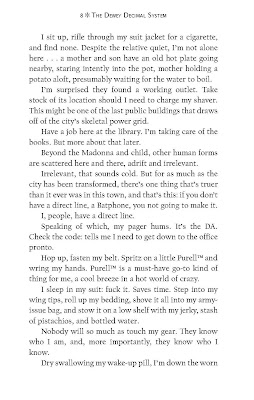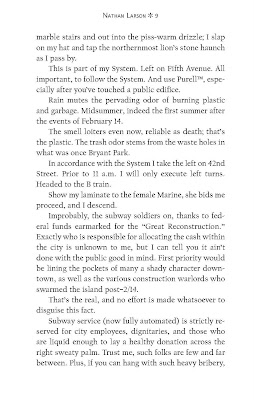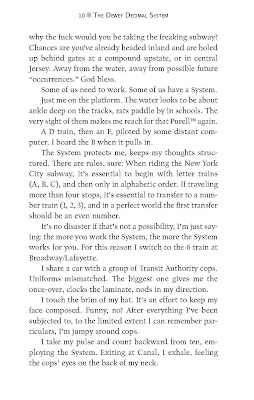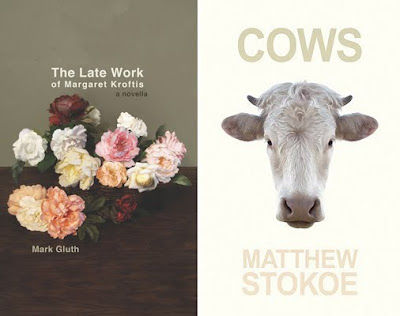










Cows comes with a reputation. It's been around, but out of print for a while, and even out of print, it was always a book you had to read, a book that, if the word of mouth about it was correct, destroyed any notions of what language could do, what books could be. Of course its being out of print meant it was difficult to find, and expensive when you did. So it was out there, reputation strong but by-and-large unread. That's why it's so awesome that Akashic (via Dennis Cooper's Little House on the Bowery series) is bringing it out for a proper re-release. Having read the book twice through for this review, I'm left in awe of Stokoe's abilities as a writer. His writing demonstrates a power where it acts as a spell (or at least it left me spellbound). It's grotesque without being a caricature, it's both desolate and lyrical, it's pornographic, but it exploits the reader as opposed to the subject. It actually evinces a sense of cruel power to the point that, as a reader, I felt it cruelly rendered me powerless. As a writer and reader who takes great pleasure in the puzzles language can create and the games it can play, I've rarely read a book that I felt instead of thought (it actually made me feel like shit, and I literally tasted shit in a scene where two characters eat shit).
Reading Cows made me think of Stokoe's other books and how different they each are from Cows. High Life and the recently released Empty Mile take complex noir-ish plots and suffuse them with varying degrees of the same nihilism found in Cows. However, Cows is impossible to compare to other literature at all. It reminds me more of a sculpture or a painting. It reminds me of a song by SWANS from early in their career, or of a Bosch painting. It's a nightmarish book, full of language so powerful it transcends language. It's highly recommended.
#
Mark Gluth is the author of The Late Work of Margaret Kroftis. He lives in the Pacific Northwest, and is hard at work on his second novel.
Gluth will read with Little House on the Bowery author Lonely Christopher, at Pilot Books in Seattle, on Friday, 1/28, 7pm.
